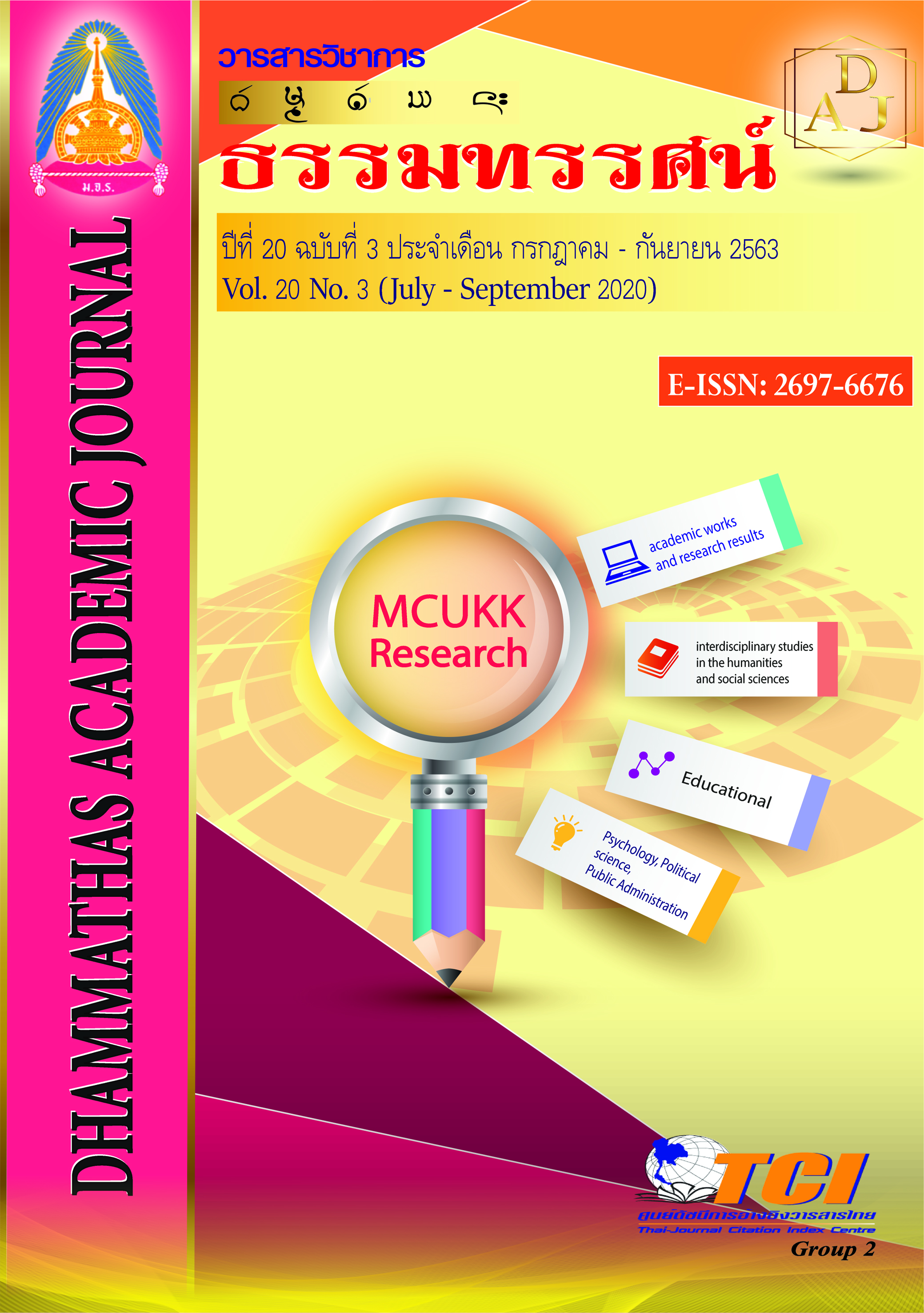The Wisdoms Influencing the Community Economy Development of the Communities in Phayao, Thailand
Main Article Content
Abstract
The research objective is to study the wisdoms influencing the community economy development of the communities in Phayao. The quantitative methodology was conducted. Unit of analysis it household level. Samples are 232 household heads which was the all of household heads. The tool of research is interview schedule for collecting data. Data analysis is multiple regression. Table and descriptive are used for presenting the data.
The results were found that: Demotions of wisdom, livelihood, social relation, and religion and believe are positive influence on the community economy development with statistical significance at .05. When considering the wisdom that has the best power to predict the changes of community economic development, it is found that social relations has the most power to predict changes in community economic development. Which has a standard regression coefficient (β) equal to .413. The following is livelihood which has a standard regression coefficient (β) equal to .277, religion and belief which has a standard regression coefficient (β) equal to .184 and a handicraft which has a standard regression coefficient (β) equals .177 respectively. It can explain the variability of community economic development 51.9 percent (R2 Adjust = .519). And there is a standard deviation in the model estimation of 11.34999 (Std.EE. = 11.34999).
Article Details
References
Danthanin, M. (1998). Community Economy should be Self-reliant in the System: Principles and Practices. Complete Report of the Master Plan for Economic Development Society and Environment. Lopburi : Soyell and Environmental Development Company.
Department of Agricultural Extension. (n.p.). Introduction to local wisdom. Group of Local wisdom, Agricultural Development Department. Bangkok : Department of Agricultural Extension.
Jommueng, L. and Wasusophapol, S. (2003). Thai Lue woven cloth: Community economy for Self-Reliance. Bangkok : Creative Publishing Company Limited.
Khunpol, S. (2015). A Study of Cultural Identity in Beliefs of Kohyor Community. Parichart Journal, Thaksin University, 28(3), Special edition, 82-103.
Nakornthan, S. (1996). Concept of Quality of Life and Social Indicators: Group / Community Level in Developing Thai Quality of Life and Society Indicators. (Anuchat Puangsamli and Orathai Arathai. Editors). Bangkok : Office of the Research Fund.
Na Thalang, E. (1997). Wisdom of the Four sectors. Way of life and learning process of Thai people. Nonthaburi : Sukhothai Thammathirat Open University.
Photisita, S. (2012). Thai Countryside in a Capitalist way. Bangkok : Royal Insitute of Thailand
Pongpit, S. (2005). Base of thought: from the Master Plan to Community Enterprises. Bangkok : Wisdom Publishing.
Pongpit, S. (2007). Paradigm of sustainable development. Bangkok : Phangpanya Publishing House.
Romratanapan, W., et al. (2003). Complete research report Social Scholarship Program As a production factor of the community economy. Research report. Bangkok : Thammasat University.
Samniang, C. (2018). Development of capital-political group in the North of Thailand: Transformation of economic and cultural to political capital. PSDS Journal of Development Studies Thammasat University, 1(1), 1-48.
Sugannasil, W. (1997). Capitalist Development and Changes in Village Community: A Survey with Some Observations. Songklanakarin: E-Journal of Social Sciences & Humanities, 3(1), 109-129.
Thai Encyclopedia for Youth. (2019). Thai wisdom branch classification. http://kanchanapisek.or.th/kp6/sub/book/book.php?book=23&chap=1&page=t23-1-infodetail03.html (Accessed 3 March 2019).
Visuddhangkoon, K. (2017). The Usefulness of Buddhism in Enhancing the Economic Conditions of the Rural E-san Households: A Case Study of Muang District, KhonKaen Province. Humanities & Social Sciences, 34(1), 247-269.

